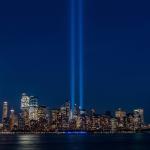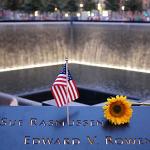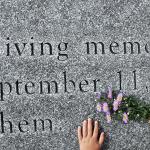9/11 Victims Compensation Fund
Though 16 years have passed since the tragic World Trade Center attacks, we are nowhere near closing that chapter of our history. The infamous dust that coated the neighborhoods surrounding the former twin towers still haunts the survivors, sadly causing the death toll to climb even higher.
Congress voted to extend the Victims Compensation Fund until December 18, 2020.
The James Zadroga Health and Compensation Act was established in 2010 to help compensate 9/11 survivors who suffered injuries or illnesses caused by the attacks. The bill, which funded the 9/11 Victims Compensation Fund (VCF), was originally scheduled to expire in 2016. However, on December 18, 2015, Congress voted to extend the deadline by another four years: from October 3, 2016 to December 18, 2020.
The 9/11 Victims Compensation Fund can help recover compensation for medical bills, lost wages, and pain and suffering for the injuries survivors have suffered. Congress recently allocated an additional $4.6 billion to better compensate these claims.
In the past, survivors and those who worked, studied, or lived in areas plagued with dust from the towers may have been told that they missed the deadline for filing a VCF claim. But, because of recent changes to VCF eligibility and deadlines, survivors may qualify for compensation now.
If you lived, worked, or studied south of Manhattan’s Canal Street from September 11, 2001 to May 31, 2002 and were diagnosed with a respiratory illness or cancer, you may be eligible for compensation. Contact us today for a free, no-obligation case review.
Toxic Dust Caused Cancers, Respiratory Illnesses
Research now shows that the dust that coated neighborhoods and businesses south of Canal Street after the twin towers collapsed was highly toxic. Recent scientific analysis shows that the dust contained jet fuel, plastics, metal, fiberglass, and even asbestos. It registered dangerously high pH levels of 10 and 11 (7.4 is considered normal).
Dr. Michael Crane, the director of the World Trade Center Health Program’s lead clinical center at Mount Sinai, described the dust as a “witch’s brew.” “It was thick, terrible stuff,” he said.
Fires also burned at Ground Zero for 90 days, releasing toxic smoke that exposed many first responders, volunteers, residents, workers, and students to multiple carcinogens. Since then, survivors have developed respiratory illnesses, lung disease, and life-threatening cancers.
Medical professionals have even diagnosed a chronic cough that is unique to 9/11 survivors: the “World Trade Center cough” (WTC cough). Its victims suffer from a persistent cough that is often accompanied by breathlessness, wheezing, acid reflux, and nasal congestion.
Since the attacks, it’s estimated that more than 32,000 in the disaster area have been diagnosed with respiratory illnesses like asthma, chronic obstructive pulmonary disease (COPD), and WTC cough. For many, survivors will have these chronic conditions for life.
The number of 9/11-connected cancer diagnoses have tripled since 2014.
In some cases, survivors have been diagnosed with cancer. But because the attacks were so long ago, many don’t immediately connect their diagnosis with their previous proximity to Ground Zero. It’s important to remember though that cancer can take years to develop—in some cases, even decades.
Most survivors are just now being diagnosed with cancer. In fact, the number of 9/11-connected cancer diagnoses have tripled since 2014.
As of June 2016, 9/11 has been linked to 70 types of cancer, and 5,400 cancer diagnoses.
Lawsuit Eligibility
If you meet each of the following criteria, you may be eligible to file a claim with the Victims Compensation Fund:
- You worked, lived, or attended school south of Manhattan’s Canal Street from September 11, 2001 through May 31, 2002.
- You developed any form of respiratory illness or cancer from 2014 through 2020.
Eligible Illnesses
The toxic, carcinogenic dust has resulted in a number of respiratory issues which may qualify for compensation under the fund, including:
- Interstitial lung disease
- Obstructive airway diseases
- Pulmonary fibrosis
- Reactive airways dysfunction syndrome (RADS)
- Asthma
- Chronic sinusitis
- Chronic rhinitis
- Chronic obstructive pulmonary disease (COPD)
- Asbestosis
- Acid reflux disease
Any form of cancer may also be eligible for VCF compensation. The most common forms of 9/11-related cancer include:
- Non-melanoma skin cancer
- Prostate cancer
- Melanoma skin cancer
- Lymphoma
- Thyroid cancer
- Lung cancer
- Breast cancer
- Leukemia
Deadlines to File a VCF Claim
If you have a 9/11-related cancer or respiratory illness, it’s important that you file a claim immediately. The VCF states that claims must be filed within two years of the date that victims knew their illness was caused by the September 11, 2001 attacks.
Regardless of the type of illness, all VCF claims must be filed no later than December 18, 2020.
How Can an Attorney Help File a Claim?
When you obtain legal representation to file a claim with the 9/11 Victims Compensation Fund, you can rest assured that you have an advocate who will not only manage every step of the process, from collecting evidence to filling out paperwork, but one who will do so with an expert eye for eligibility requirements.
Attorneys can ensure you receive every benefit you are eligible for so that you recover the maximum amount possible for your suffering.
ClassAction.com Can Help
The 9/11 Victims Compensation Fund has strict deadlines for filing claims, so it’s important that survivors who were diagnosed with cancer or respiratory illnesses file immediately. Our team of attorneys know the eligibility requirements and have experience filing VCF claims. They will ensure you receive the maximum compensation you are eligible for.
These claims are time sensitive so don’t wait; contact us today.
Did you find what you need?





